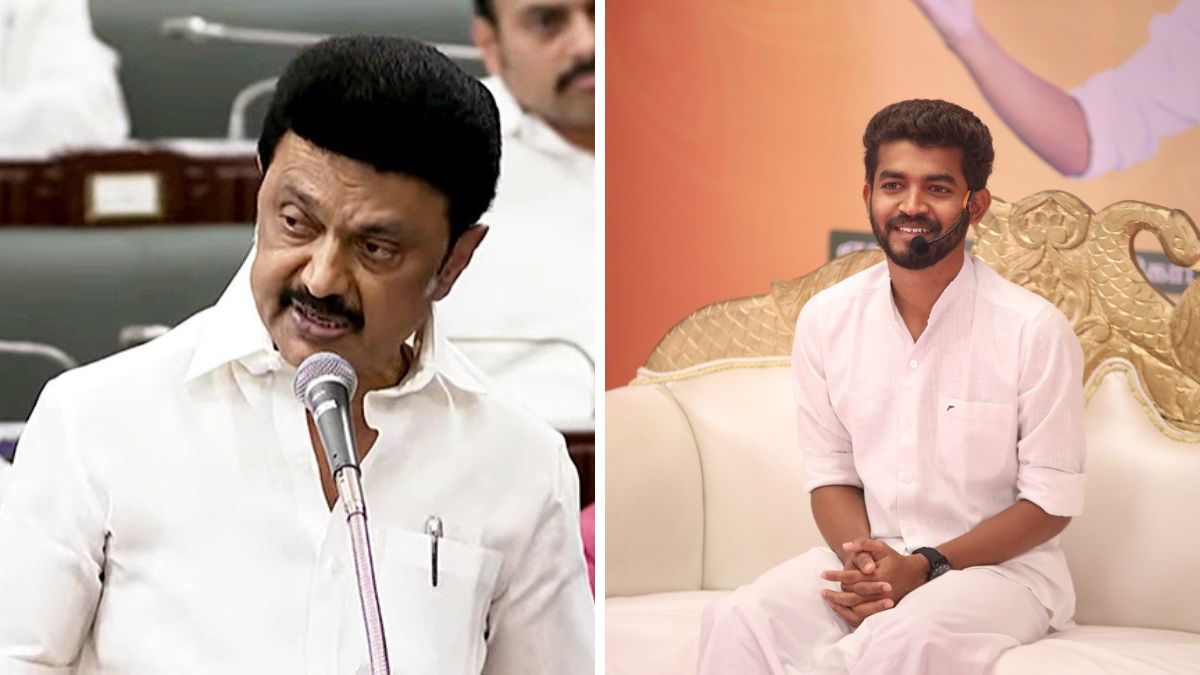The recent incident in Chennai involving motivational speaker Mahavishnu and his address to students at a government school on Teacher’s Day has sparked a heated debate about the boundaries of spirituality in education. While Mahavishnu intended to inspire students, his talk, heavily laden with spiritual concepts like karma, rebirth, and the British destruction of ‘Gurukulams,’ was met with resistance, prompting calls for stricter regulations on such programs in schools.
The Controversy Unfolds: A Misguided Attempt at Inspiration?
Mahavishnu, invited to the Mylapore school to deliver a motivational speech, chose instead to delve into spiritual doctrines, claiming that past sins and karma dictate present circumstances. This deviation from the intended topic of motivation caused considerable disquiet among the audience, particularly the school teacher who challenged his approach.
This incident has thrust into the limelight the question of how to ensure that programs in schools promote positive and constructive values while remaining respectful of individual beliefs. The public, including politicians and social media users, expressed strong concerns about the introduction of spiritual beliefs into educational institutions.
The Controversy’s Core: Conflict Between Science and Spirituality
The central tension lies in the conflict between scientific thinking and religious beliefs. The Chief Minister of Tamil Nadu, MK Stalin, emphasizing the need for scientific thinking, called for guidelines to ensure that school programs promote progressive and scientific ideas. Mahavishnu, however, seems to advocate for a worldview grounded in karma and rebirth, potentially contradicting scientific principles.
Mahavishnu’s Claims and The Public’s Concerns: A Look at Both Sides
Mahavishnu’s assertions about the British destruction of ‘Gurukulams,’ along with claims about the existence of ancient knowledge related to manipulating natural forces, have triggered intense criticism. The absence of any empirical evidence to support these claims, coupled with the potential for misinformation and indoctrination, has raised legitimate concerns about the validity and appropriateness of such content in a school setting.
While many people may hold individual religious beliefs, there is a growing awareness that educational institutions should foster an inclusive and unbiased environment where students can explore diverse viewpoints while developing critical thinking skills. The potential for religious biases to influence the curriculum or extracurricular activities within the school has prompted calls for careful examination of the content being introduced to children.
Seeking Solutions: Balancing Inspiration with Scientific Thought
The controversy over Mahavishnu’s speech has exposed the need for a balanced approach to inspirational programs in schools. Finding the right balance between fostering positive values and ensuring that these programs are grounded in fact and evidence is essential.
Guidelines and Transparency: Addressing The Challenges
The Tamil Nadu government’s directive to formulate guidelines for school programs is a crucial step towards ensuring that school activities align with the principles of scientific thinking and inclusive education.
Transparency is critical. Parents and the public deserve access to information about the content and purpose of such programs. The school authorities must engage in open dialogue with parents and guardians, addressing their concerns and establishing clear criteria for selecting speakers and their presentations.
Evaluating Content: A Focus on Fact-Based Information
It is important for the school administration to conduct a thorough evaluation of any program or speaker before inviting them into the school setting.
Prioritizing content that is factual and evidence-based, while avoiding unsubstantiated claims, is crucial for maintaining the integrity of the educational experience.
Focus on Motivation and Empowerment: A Positive Approach
Motivational programs have the potential to inspire and empower students. The focus should be on building confidence, promoting self-belief, and encouraging a positive mindset, all while upholding the values of scientific thinking and critical analysis.
The challenge lies in crafting programs that are intellectually stimulating and engaging without resorting to unsubstantiated claims or religious indoctrination.
Take Away Points
- The controversy surrounding Mahavishnu’s speech underscores the need for a careful balance between incorporating motivational programs into education and protecting the educational integrity of the school environment.
- The importance of fact-based information, transparency, and critical thinking is vital in creating a safe and enriching educational experience.
- Schools need to establish clear guidelines for selecting and evaluating programs to ensure that they are in line with educational objectives and respectful of diversity in beliefs.
- Encouraging open communication between the school administration, parents, and the community is essential for building trust and establishing a shared understanding of the role of spirituality and education.




